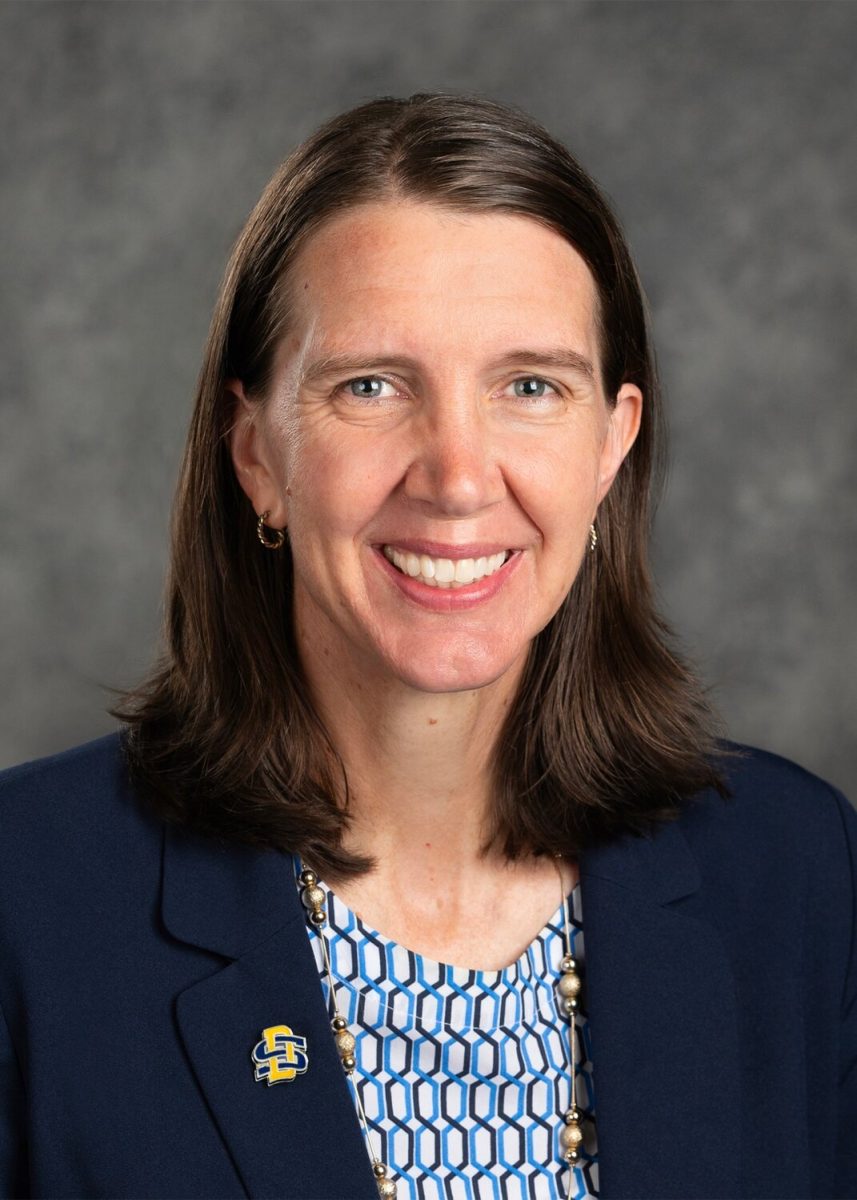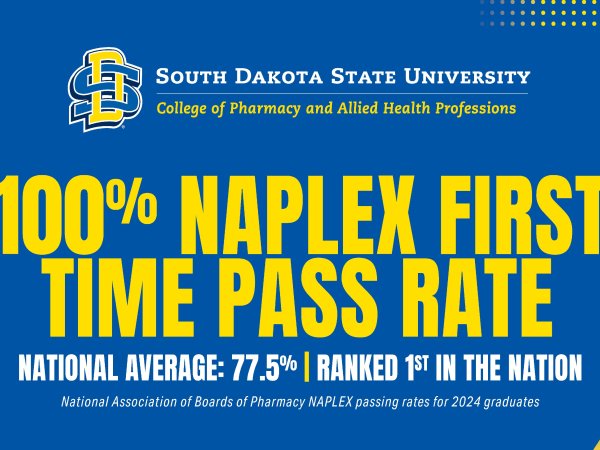Londa Nwadike, a South Dakota native and SDSU alumni, brings global food safety experience back to her roots as the new head of SDSU’s Dairy and Food Science Department, aiming to strengthen the program and inspire future leaders.
Before returning to SDSU, Nwadike spent 11 years in a joint appointment at Kansas State University and the University of Missouri, where she served as a state extension food safety specialist. During this time, she lived in Kansas City with her husband and children, but the desire to be closer to home brought her back.
“When I was a student at SDSU, I didn’t think I’d come back as the Department Head, but after having kids, being closer to family became important.”
Nwadike said that SDSU’s dairy and food science department has much to offer, particularly with strong alumni support and abundant job opportunities.
“The tradition here is strong, and there’s great support for students, from scholarships to job placements,” she said.
Her message for students is clear: “Even if you don’t feel qualified, just try. You never know what can happen.”
Looking ahead, Nwadike’s biggest hope for the department is to strengthen all programs—dairy production, dairy manufacturing, and food science—while increasing research, teaching, and extension efforts.
As for the differences she’s noticed since her own days as a student, Nwadike is impressed by how much SDSU and Brookings have grown.
What excites her most about her new role? “Meeting people,” she said. From students to dairy farmers and dairy and food processors, she enjoys the connections she’s made.
Despite the challenges of entering a new department, Nwadike is excited for the future. “There’s a lot of potential within the department, and I’m excited to be part of that positive change.”
Londa (Vanderwal) Nwadike’s journey to becoming the new David A Thompson Endowed Department Head of Dairy and Food Science at South Dakota State University is a story of hometown appreciation, global experience, and a passion for what she loves. From her beginnings in Volga, South Dakota, to working internationally, Nwadike’s career has been marked by dedication to improving food systems and empowering others to do the same.
Growing up on a farm north of Volga, Nwadike began her educational journey at a small Christian school before attending Sioux Valley High School. She then made her way to SDSU, where her original plan was to pursue animal science. However, she soon added food science as a double major.
“I had a great experience at SDSU,” she said. “The faculty and staff really invested their time in me, and the leadership activities I was involved in enhanced my learning.”
Her time at SDSU also included an early start to her academic career when she worked in an animal science lab at SDSU right after high school. In addition to academics, Nwadike was an athlete on the track and field team, excelling in shot put. She still holds the No. 6 spot on the SDSU women shot-put top 10 indoor all-time record list.
After earning her double major at SDSU, Nwadike pursued a master’s degree in meat science at Kansas State University, focusing on meat safety. This allowed her to bridge her interests in both animal and food science.
Nwadike then worked for the United Nations Food and Agriculture Organization in Rome where she lived for four years.
“I remember when I applied for that job, I didn’t think I had a chance, but I went for it anyway,” she said.
After her time in Rome, Nwadike returned to the U.S. to pursue her doctorate at the University of Iowa, focusing on agricultural health and safety. Her research took her to The Gambia, West Africa, where she worked with women vegetable farmers to help improve their working methods.
Nwadike’s experience living and working overseas has shaped her perspective. She encourages students to seek opportunities beyond their comfort zone.
“I hope I’ve helped make food safer and more accessible,” she said. “Now, I want to help students launch their careers and make a difference.”
“Sometimes you learn things in unexpected places,” she said. “You may not always start in the exact job you thought you would, but you can learn a lot that will help you in future roles.”



















